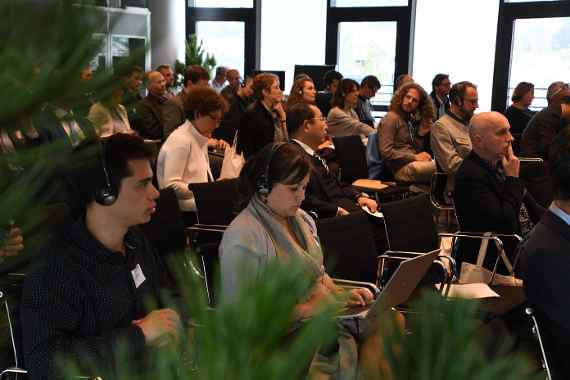Protective forest affects many people in Austria. According to the agricultural structure survey, there are about 140,000 forest owners. Many of them also own forest areas with a protective function, especially in the alpine areas.
The regional forestry directorates and their district forestry inspectorates are responsible for compliance with the legal framework (Forestry Act), declaratory procedures, notices and coordination of measures in protective Forests.
Important stakeholders in the protective forest in Austria are above all hunters, nature lovers, the timber industry, agriculture, infrastructure operators, alpine associations and nature conservation organizations. The Forest Engineering Service of the Torrent and Avalanche Control is often called upon to implement measures.
Due to the large variety of interests, compromises and dialogue forums are of high importance. The most important ones are briefly presented below.
Protective Forest Association
The Protective Forest Association gives the protective forest "a voice". The members mainly from the forestry sector are committed to the maintenance and improvement of protective forests and forests in sensitive areas. They strengthen the awareness of protective forests among the public and in politics and promote the dialogue between forestry and non-forestry interest groups. The Protective Forest Association also prepares programs and statements on forestry and environmental issues.
Protective forest platforms
Protective forest-platforms are a discussion forum for connecting the different actors. In Austria these open forums exist at many different levels, local as well as federal.
Forest Dialogue
The Austrian Forest Dialogue aims to unite the diverse interests in the use of forests and to further develop the careful management of forests. It serves as a model for participation and multi-level governance. A very important topic of the forest dialogue are protective forests. In the Forest Strategy 2020+ from the government, the strategic goals for achieving the protective function of Austria's forests are outlined.
International
EUSALP
The EU’s Macroregional Strategy for the Alpine Region (EUSALP) covers the 7 Alpine countries and in total 48 regions. In EUSALP 9 Action Groups deal with important alpine topics such as traffic, energy, biodiversity protection and adaptation to climate change.
The protective function of forests and the impact of climate change are important issues addressed in Action Group 8. In September 2019 an international conference was held on this topic. In addition, a working group composed of representatives of the Alpine countries deals with multifunctional mountain forests in the context of climate change.
Alpine Convention
In the Mountain Forest Protocol of the Alpine Convention the Alpine countries acknowledge that protective forests provide the most effective, economically most efficient and most landscape-appropriate protection against natural hazards. The Protocol is relevant under international law and highlights the services that protective forests provide for regional climate balance, air purification, water balance and natural hazard prevention.
Article 1 defines the objective “to preserve the mountain forests as near-natural habitats and whenever necessary to develop them or increase their extent and improve their stability.” The countries undertake to ensure that:
- methods of natural reforestation are adopted,
- the forests are well-structured and graduated, with tree types suited to their location,
- the forest reproduction material used is indigenous,
- erosion and compacting of the soil is avoided by ensuring methods of use and collection that comply with the needs of nature.
In times of increasing human influence on our environment the protective functions and other ecosystem services provided by forests are gaining importance. At the international level too, the exchange of experience and policies, for example in the field of adaptation to climate change, is becoming very important.
FAO EFC WPMMW
As early as in the 1950s, the Working Party on the Management of Mountain Watersheds (WPMMW) of the European Forest Commission (EFC) was established. Its Office is located at the Food and Agriculture Organisation of the United Nations (FAO) in Rome.
Since 2019 the Working Group 3 is explicitly dealing with the protective functions of mountain forests, the relationships of water and forests and approaches to manage the impact of climate change on mountain- and protective forests.
The international Working Group with members from North Macedonia, Austria, France, Switzerland, Italy, Greece, Germany and Slovenia is focusing on practical exchange as well as on knowledge exchange and project development.

